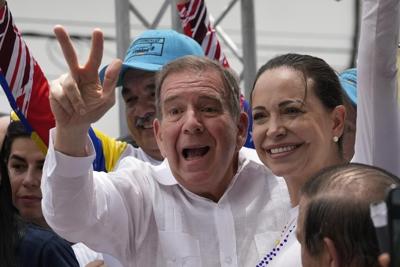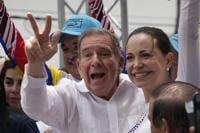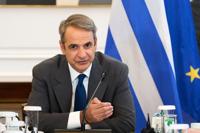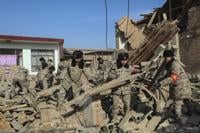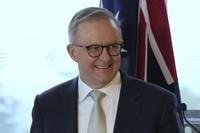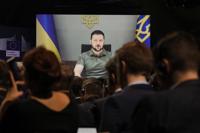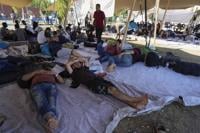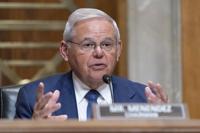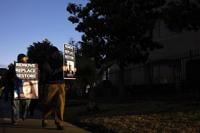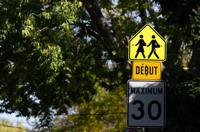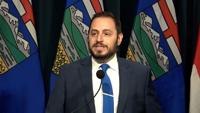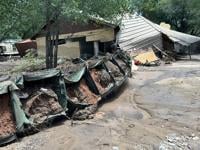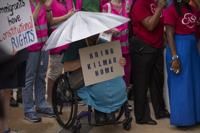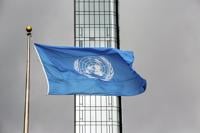SABANA DE MENDOZA, Venezuela (AP) — One of the most influential politicians in Venezuela once deemed images of his fellow citizens abandoning their home country the result of a professionally scripted, “Hollywood-type blockbuster.”
Migration, Diosdado Cabello said, was an issue conjured by a “media apparatus.” Similarly, his boss, President Nicolás Maduro, denied for years, at least publicly, that millions of people were literally .
Nothing, however, could have pushed them out of denial and into acceptance faster than the existential threat that their self-described socialist government is facing for the first time in years.
As Maduro works toward reelection with a divided, diminished and disappointed base, he has slowly transformed into a defender for migrants, challenging news reports linking some to criminal activities and accusing immigration authorities in other countries of abusing Venezuelans.
Maduro, like the chief opposition coalition, is promising job opportunities to lure people to return or not leave. But unlike the opposition’s proposals, his no longer ring true for many voters, and they have already made up their minds: If Maduro wins on , they will become migrants.
“I love Venezuela. I would like to pursue a medical career here, but one must think about the future,” said Arnaldo Benitez, 18. “I want my family to have a decent life and not be thinking ‘I can’t afford this or that.’ So, I have to plan for a better future .”
Benitez, who finished high school last year, plans to move to Colombia, which has received the largest share of the since their country came undone last decade. He said other people in his rural community of Torococo are also waiting for the election outcome to decide whether to leave, but a group of 20 thought it best not to wait and left in early May.
A nationwide poll conducted last month by the Venezuela-based research firm Delphos showed that roughly a fourth of people are . Of those thinking about leaving Venezuela, about 47% said an electoral win by the opposition would make them stay and roughly the same amount indicated that an improved economy would also keep them in their home country.
Migration decisions are dominating conversations at malls, high schools and political rallies. Some people are saving whatever money they can from various jobs and others are selling their belongings.
In the 11 years since Venezuelans learned that President Hugo Chávez was dead and , would take over, sunk the country into a complex crisis, pushing people into poverty, hunger, poor health, crime, desperation and migration. Economic sanctions imposed last decade failed to topple Maduro, as the United States and other governments intended, but they contributed to the existing crisis.
In recent months, he accused media outlets, including The Associated Press, of carrying out a campaign against Venezuelan migrants, accusing them of “saying that all the crimes in the world today are committed by Venezuelans.”
“To Venezuelan migrants: We love you and our love makes us say, ‘Come back!’ We are waiting for you here, this is your land,” he said on state television in February. “Enough of xenophobia and persecution.”
Maduro is seeking to extend his presidency for six more years. Last year, he entered into an agreement with the U.S.-backed Unitary Platform opposition coalition to work toward improving conditions for a free and fair election. But he has since changed course as turned into a real threat to his reelection prospects, and he has used his ruling party’s control over all government institutions to tilt the balance.
The country’s top court in January . Her chosen substitute was barred from the ballot, too. She and the coalition are now backing . Compared to Machado, who has campaigned for more than a year, few voters know González’s name or background, but her endorsement is enough for many to want to vote for him.
González, during his first campaign rally in mid-May, asked supporters to imagine “a country in which our airports and borders would be filled with our children returning home” should he win.
A father of three, Miguel Montilla, 53, retired from the armed forces after 27 years of service, but he and his family cannot live off his roughly $20 monthly pension. He said he will vote for González because he hopes the candidate will implement changes that spur economic development and convince two of his children to return to Venezuela, just as .
“I have lost my children because they dropped out of college and migrated. I want them to come back and have a family life and a better future,” said Montilla, who has a small convenience store in Sabana de Mendoza. His eyes swelled at the thought of a family reunion, but after a few hopeful seconds, he considered the other possibility after the election.
“I better encourage my other son to leave if Maduro wins again. He has to leave," Montilla said. "I might leave, too.”
The Delphos poll showed that people between the ages of 18 and 34 were more likely to consider leaving Venezuela. The poll had a margin of error of 2 percentage points.
Colombia’s migration chief, Fernando García, told Congress earlier this month the government “should expect a large influx of Venezuelan migrants” should Maduro win. The director of the Migration Colombia agency said Maduro’s victory coupled with the recent decision of the U.S. government to end some sanctions relief for Venezuela create the conditions that can lead to migration.
Most Venezuelan migrants have settled in other countries in Latin America or the Caribbean, but after the pandemic eliminated millions of jobs across the region,
Public employees these days earn a monthly minimum wage of $3.60 plus $130 in bonuses, while private-sector workers make on average $210 a month. Neither monthly pay is enough for a family to buy a basic basket of goods, which costs about $380.
At a government-organized rally earlier this month in the capital, Caracas, the low wages were the only reason cited by some high school students who acknowledged they are considering migrating later this year. They dream about becoming engineers, owning businesses and caring for the sick but all are willing to postpone or forget those goals.
Many students wore their uniforms, and some wore T-shirts backing the president, even though when asked, they did not want to verbally express support for him. High school senior Jaxael Rivera and other public school students from across Caracas were bused into the rally, which was eventually addressed by Maduro.
“I would need a good paying job to stay,” said Rivera, who is planning to join his sister in Spain, where she has lived for two years.
___
Follow AP’s global migration coverage at

